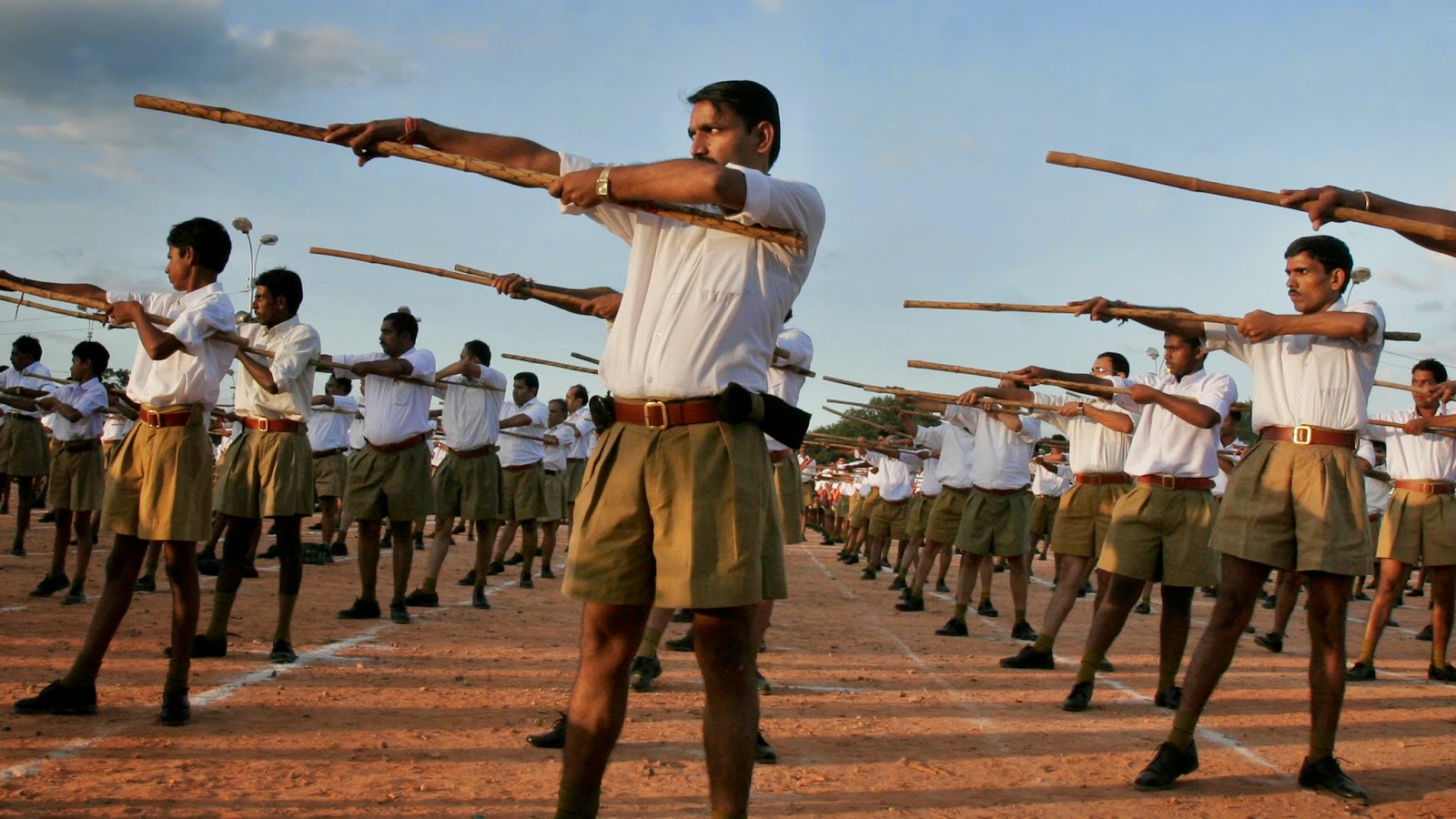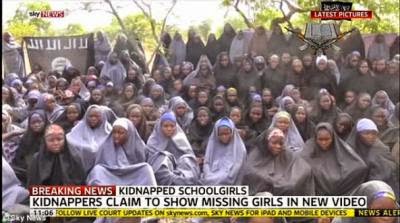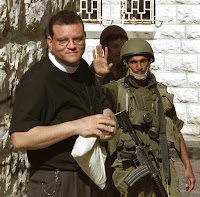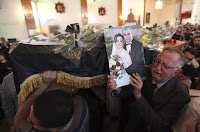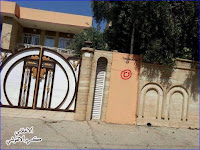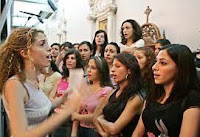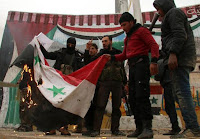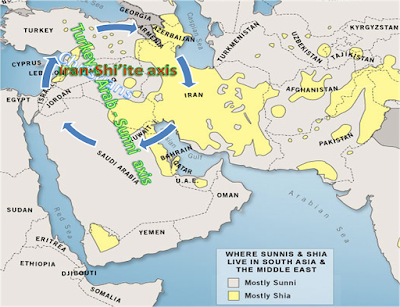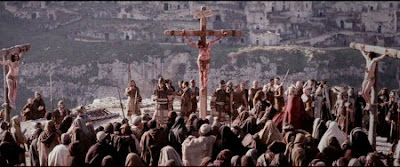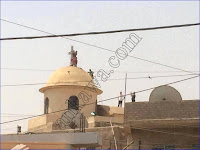plus: Egypt's Sad Reality
By Elizabeth Kendal
When the Egyptian military, under the leadership of General Abdel Fatta el-Sisi, ousted the Muslim Brotherhood-dominated government of President Mohamed Morsi on 3 July 2013, it triggered an explosion of violence against Copts (the Christian, indigenous people of Egypt) as Muslim Brotherhood (MB) elites and supporters blamed Copts / Christians for the coup.
See: Religious Liberty Prayer Bulletin (RLPB) 218 (10 July 2013).
Once the Copts had been sufficiently terrorised and subjugated (i.e. put in their place), the MB got down to business, strategising on how to challenge the military head on.
In an article entitled, "Why the Ikhwan has not lost in Egypt, and why the challenge is just beginning" published in the July edition of Defense & Foreign Affairs Strategic Policy, terrorism analyst Yossef Bodansky writes: "The Ikhwan's [MB's] spiritual guides are now calling for a violent intifada against the military: a confrontation where the military's superior firepower would create numerous martyrs, thus reinforcing and affirming the Ikhwan's own claim of victimhood.
"The distance to an Algerian-style civil war is very short."
This is something I noted in June 2012.
See EGYPT: echos of Algeria as SCAF trumps Islamists
Bodansky elaborates (July 2013):
"Ikhwan leaders are actively preparing at the highest level for a rather imminent escalation of the fighting. On 14 July 2013, the Ikhwan's supreme leadership issued a formal guideline for the struggle against the military towards the restoration of Islamist governance.
"The document urges 'shedding blood and dividing the army'. The document states that 'emerging victorious over the enemy requires patience, faith and determination'. The main undertaking to attain the Ikhwan's ultimate goal are 'disbanding the Egyptian army, dividing it and distorting its image'. The document stresses the importance of 'sparking bloodshed' in the upcoming phases of the confrontation, with emphasis on encouraging 'martyrs' and 'sacrifices' from among the Islamist masses.
"The document then provides guidelines on how to restore 'the collective consciousness' and original goals of Egypt's Islamic revolution."
Bodansky writes that the document decries the army as a puppet of America, and its supporters as westernised. "The Ikhwan's objective," explains Bodansky, "is to portray the military coup as a US conspiracy against Muslim Egypt."
Bodansky notes that the document concludes with what is essentially a threat: "The Egyptian army in its current situation will not be able to provide stability." (emphasis mine)
Bodansky continues: "The imminence of the threat was clarified in a decree issued the same day by the Ikhwan's spiritual leader, Muhammad Badie which permitted all Islamist protestors to break the fast of Ramadan since they are in a 'state of jihad' and are 'waging a battle for the control of Egypt'.
"Badie compares the struggle against the Egyptian army to the Battle of Badr (the decisive battle waged between the forces of the Prophet Mohammed and the Jewish tribe of Quraish in 624). Badie compares Cairo's Rabia al-Adawiya Mosque -- the Ikhwan's centre -- to prophet Mohammed's camp in Medina. 'The ruling against those who leave Rabia al-Adawiya Square is akin to the ruling against those who flee the battle and jihad against the infidels,' Badie wrote. On the basis of the decree, Badie ordered Ikhwan leaders to prepare for 'the second Battle of Badr' on the battle's anniversary on Ramadan 17 (July 26, 2013)."
This provides the context for the two "sit-ins" in Cairo which drew thousands of MB supporters to camp in the streets for six weeks.
MB challenges military.
As noted by Amnesty International, these protest sites were dangerous, violent places, where those who voiced objections were beaten, raped, tortured and killed. The "sit-ins" comprised bands of violent, armed MB supporters who provoked the military from behind a screen of human shields: i.e. thousands of women and children.
Military moves against MB
What occurred on Wednesday 14 Aug, when the military went in as promised to disperse the "sit-ins" and clear the streets, was a massacre, a bloodbath. While it was doubtless much worse than the MB leadership imagined it would be -- with the army massacring over 900 Egyptians in four days -- a massacre was exactly they had sought. This would be great for propaganda; great for recruitment.
MB supporters react against Copts
The 14 August crackdown triggered another explosion of violence against Copts / Christians -- the worst anti-Christian violence Egypt has seen in contemporary times.
Over the next few days, churches, monasteries and other Christian properties, including schools and businesses, were torched and looted by rampaging MB supporters in Sohag, Minya, Beni Suef, Fayium, Asyut, Alexandria, Suez and Cairo. Bible Society bookshops in Assiut and Minia were destroyed. Three nuns taken out of the Franciscan school in Bani Suef were paraded 'like prisoners of war' through mob-filled streets on until a courageous Muslim woman rescued them and took them into her home. Two other Christian women who fled from the school were observed being hit, groped and spat on as they fought their way through the mob.
See: RLPB 224 (21 Aug 2013)
For more details see, Egypt: Mass Attacks on Churches
Christians Say Pleas for Protection Fell Largely on Deaf Ears
Human Rights Watch, 22 Aug 2013
While violence was recorded all across Egypt, Minya province in Upper Egypt was worst hit and Delga, the town nearest the Giza-Luxor highway, bore the brunt.
Samir Lamei Sakr, a prominent Christian lawyer, told The Guardian: "As soon as the crackdown in Cairo started [14 Aug], all the loudspeakers at the main mosques in Delga issued calls for jihad." Christian properties were marked. Sakr's home was attacked and he was hit with 13 shotgun pellets. His cousin, however, was killed by Islamists who then tied his body to a tractor and dragged it around the town. Bishop Macarius told The Guardian that though they called for help, "no one answered. Not the police, not the army, not the fire service." Even churches within sight of the provincial police headquarters were burned. More than 100 forcibly displaced Christian families fled Delga with nothing and have nothing to return to.
Emergency Law was established for one month, military officers were installed as governors and 14 governorates were placed under 7pm-6am curfews.
Suicide bombing challenges regime
On 5 Sept, Egypt's Interior Minister narrowly escaped a serious assassination attempt when a suicide bomber blew up his car as the minister's convoy drove through Nasr City. Ten police and eleven civilians were wounded in the massive explosion which ripped off the front of one building.
On 12 Sept, the state of emergency was extended for a further two months.
Security forces storm Delga
On Monday 16 September, heavily armed Egyptian troops stormed into Delga, arresting 56 and liberating the town from two months of Islamist control.
According to Stratfor Intelligence (16 Sept), the military could have liberated Delga from as early as 22 Aug, but instead spread "exaggerated rumors about the persecution of Copts to justify operations". Rather than spread "exaggerated rumors" of persecution, I would suggest that the military chose to "exploit" very real and very severe persecution "rather than prevent it, to legitimise military violence, military rule and requests for military aid" -- just as was anticipated in RLPB 224, 21 Aug 2013.
While Christians are understandably relieved, Ahmed Salah, a local human rights lawyer, believes the crackdown was less about protecting Christians and more about exploiting the state of emergency to take revenge on those who have attacked police and stolen their weapons. Officials from the Interior Ministry all but confirmed that the military action had nothing to do with protecting Christians. The New York Times reports (16 Sept): 'Interior ministry officials said the [military] expedition was an attempt to capture a single fugitive Islamist, and it may depart soon. The overwhelming force, they said, was merely for self-protection [as] the surrounding province of Minya is still considered a bastion of Islamist support for Mr. Morsi.'
See (recommended): In Islamist Bastions of Egypt, the Army Treads Carefully, and Christians Do, Too
By David Kirkpatrick for the New York Times, 16 Sept 2013
Copts / Christians fearful of backlash
The NYT article (above) both reports the experiences of Christians and gives voice to their fears. "Christian residents [in Delga] said opportunists in the town had tried to demand money to protect local Christians from further attack, recalling a tax [jizya] levied on Christians centuries ago. [see Qur'an 9:29]
"'The thugs are asking for money for protection,' said the Rev. Yoanas Shawki, 33. The security forces met no resistance when they arrived early Monday, interior ministry officials and local witnesses said, although a resident said the police later used tear gas to disperse an afternoon rally. Ministry officials said the expedition was hunting Assem Abdel Maged, a veteran leader of the Gamaa al-Islamiya, so far unsuccessfully.
"Magid Nessim, a Christian, said he feared the security forces might soon leave again. 'There could be retaliation attempts against Copts,' he said, 'from Islamists or other people who are angry now at the army's presence.'"
The violence in Egypt is settling into a pattern / a deadly cycle
(1) The MB challenges the military (resisting the coup),
(2) the military responds with force,
(3) MB supporters react with violence against Copts / Christians (who they blame for the coup).
Then the cycle starts again.
Recruiting for the "Free Egypt Army"
-- thousands of Algerians have already volunteered
Meanwhile, Bodnasky reports, "The Ikhwan [has] dispatched several leaders – both religious and former military – to Arab countries with strong jihadist traditions in order to recruit jihadist volunteers for the Ikhwan's 'Free Egyptian Army' to fight the Egyptian military, reverse Morsi's ouster, and unleash a jihad against Israel and for the liberation of al-Aqsa.'
"Algerian security officials warned that the Egyptian recruiters had already signed up a few thousand Algerian volunteers. Among then recruited Algerians are dozens of street leaders and commanders from the Algerian civil war."
With the MB recruiting jihadis in Algeria and beyond, we can only anticipate that terrorism against the state will escalate.
At first glance it might appear that Egypt is heading back to the 1990s, when terrorism was routine, the state was under emergency rule, and the jails were full of Islamic militants and MB provocateurs. But it is not so!
In the 16 years since al-Gama'a al-Islamiyya killed 58 foreign tourist at Luxor, a massive amount of grassroots radicalisation has occurred courtesy of Saudi Arabia's clerical establishment. Today, Egypt's Copts / Christians are at risk not only from militants and military, but from mobs -- mobs made up of their own neighbours -- radicalised grassroots Muslims -- MB supporters who blame Copts / Christians their victimisation. And of the three -- militants, military and mobs -- the mobs may well prove to be the most deadly.
Elizabeth Kendal is the author of
Turn Back the Battle: Isaiah Speaks to Christians Today
(Deror Books, Dec 2012)
------------------------------------
EGYPT'S SAD REALITY
------------------------------------
The present crisis results from the convergence of several strategic trends: in particular, the arrival of 'democracy' after decades of Saudi-sponsored Islamic radicalisation in a state that is hurtling towards collapse.
Egypt's population has exploded, doubling in one generation to more than 92 million; consequently the state is straining under weight of a massive youth-bulge. On top of this, Egypt has high unemployment (over 40 percent), high illiteracy (45 percent), high level of familial marriages (35 percent), as well as critical food and fuel shortages and looming bankruptcy.
As a desert nation with little arable land, Egypt must import most of its food. While bread is a staple of the Egyptian diet, 70 percent of wheat must be imported, as must fuel. And while the government has long subsidised the cost of bread and fuel, it can no longer afford to do so, for Egypt is running out of money.
Saudi money keeps Egypt afloat and the Saudis have long wanted their nemesis, the Muslim Brotherhood -- which advocates republicanism and rapprochement with Iran -- not just out of power, but crushed. In this, the interests of the Saudis, the Egyptian military and the Salafis converged. [Te profoundly anti-Shi'ite Salafis prefer the Saudi model, where Muslim bureaucrats / administrators run the state and bear the burden of governance while funding Muslims to get on with business of advancing Islam.]
Furthermore, despite Egypt being the most populous Sunni Arab state and a major centre of Sunni Islamic learning, Egypt is not as strategically significant as most Egyptians would like to think. In reality, Egypt's strategic significance begins and ends with its ability to secure the Suez Canal and the Sinai-Israeli border. The military know this; it gives them confidence to act as a law unto themselves. Had Morsi appreciated this he would not have antagonised the military.
Though the military deposed Morsi, it does not want to govern Egypt. The military doesn't want the burden of governance; it doesn't want to take the blame when Egypt's systemic economic and demographic problems can't be solved quickly and painlessly to the peoples' satisfaction. A puppet will do nicely for that! What the military wants is to control power in pursuit of its own interests. And because the military is the most strategically important institution in Egypt, it can act as a law unto itself.
While Christians are understandably delighted to see the Muslim Brotherhood out of power and repressed, they need to understand that the military is acting with Christians or secularism or religious freedom in mind. The military's interim constitution appeases the Salafis by retaining all the Islamist elements that have caused Copts and other Egyptian Christians so much grief.
The truth is, the military cares nothing for Christians and with money coming from Saudi Arabia it need have no interest in protecting Christians, only in protecting itself and crushing the MB. What's more, Saudi Arabia, the United Arab Emirates and Kuwait have promised to compensate Egypt for any losses they suffer on account of US and EU sanctions; so the miliary can crackdown as hard as it likes on whoever it likes.
Remember, this is the same military that drove tanks into Copts at Maspero in October 2011, killing 28, when the Copts led protests against the escalation in sectarian violence under the SCAF in the wake of the fall of Mubarak. This is the same military that fired live ammunition at Coptic monks and bulldozed the security walls of Coptic monasteries, removing their security so Arab raiders and jihadis could attack and plunder them. Remember, General al-Sisi is a Morsi-appointed, pro-Salafi Islamist, the same al-Sisi who gave approval to the practise of soldiers performing "virginity tests" on young women arrested in Tahrir Square.
The military will kill Christians in a flash if it believes it is in its interest to do so. It will also ignore or exploit the serious persecution of Christians, rather than prevent it, if it believes it is in its interests to do so. The situation in Egypt is incredibly serious.
---------------------------------------
Elizabeth Kendal is the author of
Turn Back the Battle: Isaiah Speaks to Christians Today
(Deror Books, Dec 2012)
By Elizabeth Kendal
When the Egyptian military, under the leadership of General Abdel Fatta el-Sisi, ousted the Muslim Brotherhood-dominated government of President Mohamed Morsi on 3 July 2013, it triggered an explosion of violence against Copts (the Christian, indigenous people of Egypt) as Muslim Brotherhood (MB) elites and supporters blamed Copts / Christians for the coup.
See: Religious Liberty Prayer Bulletin (RLPB) 218 (10 July 2013).
Once the Copts had been sufficiently terrorised and subjugated (i.e. put in their place), the MB got down to business, strategising on how to challenge the military head on.
In an article entitled, "Why the Ikhwan has not lost in Egypt, and why the challenge is just beginning" published in the July edition of Defense & Foreign Affairs Strategic Policy, terrorism analyst Yossef Bodansky writes: "The Ikhwan's [MB's] spiritual guides are now calling for a violent intifada against the military: a confrontation where the military's superior firepower would create numerous martyrs, thus reinforcing and affirming the Ikhwan's own claim of victimhood.
"The distance to an Algerian-style civil war is very short."
This is something I noted in June 2012.
See EGYPT: echos of Algeria as SCAF trumps Islamists
Bodansky elaborates (July 2013):
"Ikhwan leaders are actively preparing at the highest level for a rather imminent escalation of the fighting. On 14 July 2013, the Ikhwan's supreme leadership issued a formal guideline for the struggle against the military towards the restoration of Islamist governance.
"The document urges 'shedding blood and dividing the army'. The document states that 'emerging victorious over the enemy requires patience, faith and determination'. The main undertaking to attain the Ikhwan's ultimate goal are 'disbanding the Egyptian army, dividing it and distorting its image'. The document stresses the importance of 'sparking bloodshed' in the upcoming phases of the confrontation, with emphasis on encouraging 'martyrs' and 'sacrifices' from among the Islamist masses.
"The document then provides guidelines on how to restore 'the collective consciousness' and original goals of Egypt's Islamic revolution."
Bodansky writes that the document decries the army as a puppet of America, and its supporters as westernised. "The Ikhwan's objective," explains Bodansky, "is to portray the military coup as a US conspiracy against Muslim Egypt."
Bodansky notes that the document concludes with what is essentially a threat: "The Egyptian army in its current situation will not be able to provide stability." (emphasis mine)
Bodansky continues: "The imminence of the threat was clarified in a decree issued the same day by the Ikhwan's spiritual leader, Muhammad Badie which permitted all Islamist protestors to break the fast of Ramadan since they are in a 'state of jihad' and are 'waging a battle for the control of Egypt'.
"Badie compares the struggle against the Egyptian army to the Battle of Badr (the decisive battle waged between the forces of the Prophet Mohammed and the Jewish tribe of Quraish in 624). Badie compares Cairo's Rabia al-Adawiya Mosque -- the Ikhwan's centre -- to prophet Mohammed's camp in Medina. 'The ruling against those who leave Rabia al-Adawiya Square is akin to the ruling against those who flee the battle and jihad against the infidels,' Badie wrote. On the basis of the decree, Badie ordered Ikhwan leaders to prepare for 'the second Battle of Badr' on the battle's anniversary on Ramadan 17 (July 26, 2013)."
This provides the context for the two "sit-ins" in Cairo which drew thousands of MB supporters to camp in the streets for six weeks.
MB challenges military.
As noted by Amnesty International, these protest sites were dangerous, violent places, where those who voiced objections were beaten, raped, tortured and killed. The "sit-ins" comprised bands of violent, armed MB supporters who provoked the military from behind a screen of human shields: i.e. thousands of women and children.
Military moves against MB
What occurred on Wednesday 14 Aug, when the military went in as promised to disperse the "sit-ins" and clear the streets, was a massacre, a bloodbath. While it was doubtless much worse than the MB leadership imagined it would be -- with the army massacring over 900 Egyptians in four days -- a massacre was exactly they had sought. This would be great for propaganda; great for recruitment.
MB supporters react against Copts
The 14 August crackdown triggered another explosion of violence against Copts / Christians -- the worst anti-Christian violence Egypt has seen in contemporary times.
Over the next few days, churches, monasteries and other Christian properties, including schools and businesses, were torched and looted by rampaging MB supporters in Sohag, Minya, Beni Suef, Fayium, Asyut, Alexandria, Suez and Cairo. Bible Society bookshops in Assiut and Minia were destroyed. Three nuns taken out of the Franciscan school in Bani Suef were paraded 'like prisoners of war' through mob-filled streets on until a courageous Muslim woman rescued them and took them into her home. Two other Christian women who fled from the school were observed being hit, groped and spat on as they fought their way through the mob.
See: RLPB 224 (21 Aug 2013)
For more details see, Egypt: Mass Attacks on Churches
Christians Say Pleas for Protection Fell Largely on Deaf Ears
Human Rights Watch, 22 Aug 2013
While violence was recorded all across Egypt, Minya province in Upper Egypt was worst hit and Delga, the town nearest the Giza-Luxor highway, bore the brunt.
Samir Lamei Sakr, a prominent Christian lawyer, told The Guardian: "As soon as the crackdown in Cairo started [14 Aug], all the loudspeakers at the main mosques in Delga issued calls for jihad." Christian properties were marked. Sakr's home was attacked and he was hit with 13 shotgun pellets. His cousin, however, was killed by Islamists who then tied his body to a tractor and dragged it around the town. Bishop Macarius told The Guardian that though they called for help, "no one answered. Not the police, not the army, not the fire service." Even churches within sight of the provincial police headquarters were burned. More than 100 forcibly displaced Christian families fled Delga with nothing and have nothing to return to.
Emergency Law was established for one month, military officers were installed as governors and 14 governorates were placed under 7pm-6am curfews.
Suicide bombing challenges regime
On 5 Sept, Egypt's Interior Minister narrowly escaped a serious assassination attempt when a suicide bomber blew up his car as the minister's convoy drove through Nasr City. Ten police and eleven civilians were wounded in the massive explosion which ripped off the front of one building.
On 12 Sept, the state of emergency was extended for a further two months.
Security forces storm Delga
On Monday 16 September, heavily armed Egyptian troops stormed into Delga, arresting 56 and liberating the town from two months of Islamist control.
According to Stratfor Intelligence (16 Sept), the military could have liberated Delga from as early as 22 Aug, but instead spread "exaggerated rumors about the persecution of Copts to justify operations". Rather than spread "exaggerated rumors" of persecution, I would suggest that the military chose to "exploit" very real and very severe persecution "rather than prevent it, to legitimise military violence, military rule and requests for military aid" -- just as was anticipated in RLPB 224, 21 Aug 2013.
While Christians are understandably relieved, Ahmed Salah, a local human rights lawyer, believes the crackdown was less about protecting Christians and more about exploiting the state of emergency to take revenge on those who have attacked police and stolen their weapons. Officials from the Interior Ministry all but confirmed that the military action had nothing to do with protecting Christians. The New York Times reports (16 Sept): 'Interior ministry officials said the [military] expedition was an attempt to capture a single fugitive Islamist, and it may depart soon. The overwhelming force, they said, was merely for self-protection [as] the surrounding province of Minya is still considered a bastion of Islamist support for Mr. Morsi.'
See (recommended): In Islamist Bastions of Egypt, the Army Treads Carefully, and Christians Do, Too
By David Kirkpatrick for the New York Times, 16 Sept 2013
Copts / Christians fearful of backlash
The NYT article (above) both reports the experiences of Christians and gives voice to their fears. "Christian residents [in Delga] said opportunists in the town had tried to demand money to protect local Christians from further attack, recalling a tax [jizya] levied on Christians centuries ago. [see Qur'an 9:29]
"'The thugs are asking for money for protection,' said the Rev. Yoanas Shawki, 33. The security forces met no resistance when they arrived early Monday, interior ministry officials and local witnesses said, although a resident said the police later used tear gas to disperse an afternoon rally. Ministry officials said the expedition was hunting Assem Abdel Maged, a veteran leader of the Gamaa al-Islamiya, so far unsuccessfully.
"Magid Nessim, a Christian, said he feared the security forces might soon leave again. 'There could be retaliation attempts against Copts,' he said, 'from Islamists or other people who are angry now at the army's presence.'"
The violence in Egypt is settling into a pattern / a deadly cycle
(1) The MB challenges the military (resisting the coup),
(2) the military responds with force,
(3) MB supporters react with violence against Copts / Christians (who they blame for the coup).
Then the cycle starts again.
Recruiting for the "Free Egypt Army"
-- thousands of Algerians have already volunteered
Meanwhile, Bodnasky reports, "The Ikhwan [has] dispatched several leaders – both religious and former military – to Arab countries with strong jihadist traditions in order to recruit jihadist volunteers for the Ikhwan's 'Free Egyptian Army' to fight the Egyptian military, reverse Morsi's ouster, and unleash a jihad against Israel and for the liberation of al-Aqsa.'
"Algerian security officials warned that the Egyptian recruiters had already signed up a few thousand Algerian volunteers. Among then recruited Algerians are dozens of street leaders and commanders from the Algerian civil war."
With the MB recruiting jihadis in Algeria and beyond, we can only anticipate that terrorism against the state will escalate.
At first glance it might appear that Egypt is heading back to the 1990s, when terrorism was routine, the state was under emergency rule, and the jails were full of Islamic militants and MB provocateurs. But it is not so!
In the 16 years since al-Gama'a al-Islamiyya killed 58 foreign tourist at Luxor, a massive amount of grassroots radicalisation has occurred courtesy of Saudi Arabia's clerical establishment. Today, Egypt's Copts / Christians are at risk not only from militants and military, but from mobs -- mobs made up of their own neighbours -- radicalised grassroots Muslims -- MB supporters who blame Copts / Christians their victimisation. And of the three -- militants, military and mobs -- the mobs may well prove to be the most deadly.
Elizabeth Kendal is the author of
Turn Back the Battle: Isaiah Speaks to Christians Today
(Deror Books, Dec 2012)
------------------------------------
EGYPT'S SAD REALITY
------------------------------------
The present crisis results from the convergence of several strategic trends: in particular, the arrival of 'democracy' after decades of Saudi-sponsored Islamic radicalisation in a state that is hurtling towards collapse.
Egypt's population has exploded, doubling in one generation to more than 92 million; consequently the state is straining under weight of a massive youth-bulge. On top of this, Egypt has high unemployment (over 40 percent), high illiteracy (45 percent), high level of familial marriages (35 percent), as well as critical food and fuel shortages and looming bankruptcy.
As a desert nation with little arable land, Egypt must import most of its food. While bread is a staple of the Egyptian diet, 70 percent of wheat must be imported, as must fuel. And while the government has long subsidised the cost of bread and fuel, it can no longer afford to do so, for Egypt is running out of money.
Saudi money keeps Egypt afloat and the Saudis have long wanted their nemesis, the Muslim Brotherhood -- which advocates republicanism and rapprochement with Iran -- not just out of power, but crushed. In this, the interests of the Saudis, the Egyptian military and the Salafis converged. [Te profoundly anti-Shi'ite Salafis prefer the Saudi model, where Muslim bureaucrats / administrators run the state and bear the burden of governance while funding Muslims to get on with business of advancing Islam.]
Furthermore, despite Egypt being the most populous Sunni Arab state and a major centre of Sunni Islamic learning, Egypt is not as strategically significant as most Egyptians would like to think. In reality, Egypt's strategic significance begins and ends with its ability to secure the Suez Canal and the Sinai-Israeli border. The military know this; it gives them confidence to act as a law unto themselves. Had Morsi appreciated this he would not have antagonised the military.
Though the military deposed Morsi, it does not want to govern Egypt. The military doesn't want the burden of governance; it doesn't want to take the blame when Egypt's systemic economic and demographic problems can't be solved quickly and painlessly to the peoples' satisfaction. A puppet will do nicely for that! What the military wants is to control power in pursuit of its own interests. And because the military is the most strategically important institution in Egypt, it can act as a law unto itself.
While Christians are understandably delighted to see the Muslim Brotherhood out of power and repressed, they need to understand that the military is acting with Christians or secularism or religious freedom in mind. The military's interim constitution appeases the Salafis by retaining all the Islamist elements that have caused Copts and other Egyptian Christians so much grief.
The truth is, the military cares nothing for Christians and with money coming from Saudi Arabia it need have no interest in protecting Christians, only in protecting itself and crushing the MB. What's more, Saudi Arabia, the United Arab Emirates and Kuwait have promised to compensate Egypt for any losses they suffer on account of US and EU sanctions; so the miliary can crackdown as hard as it likes on whoever it likes.
Remember, this is the same military that drove tanks into Copts at Maspero in October 2011, killing 28, when the Copts led protests against the escalation in sectarian violence under the SCAF in the wake of the fall of Mubarak. This is the same military that fired live ammunition at Coptic monks and bulldozed the security walls of Coptic monasteries, removing their security so Arab raiders and jihadis could attack and plunder them. Remember, General al-Sisi is a Morsi-appointed, pro-Salafi Islamist, the same al-Sisi who gave approval to the practise of soldiers performing "virginity tests" on young women arrested in Tahrir Square.
The military will kill Christians in a flash if it believes it is in its interest to do so. It will also ignore or exploit the serious persecution of Christians, rather than prevent it, if it believes it is in its interests to do so. The situation in Egypt is incredibly serious.
---------------------------------------
Elizabeth Kendal is the author of
Turn Back the Battle: Isaiah Speaks to Christians Today
(Deror Books, Dec 2012)




.jpg)


